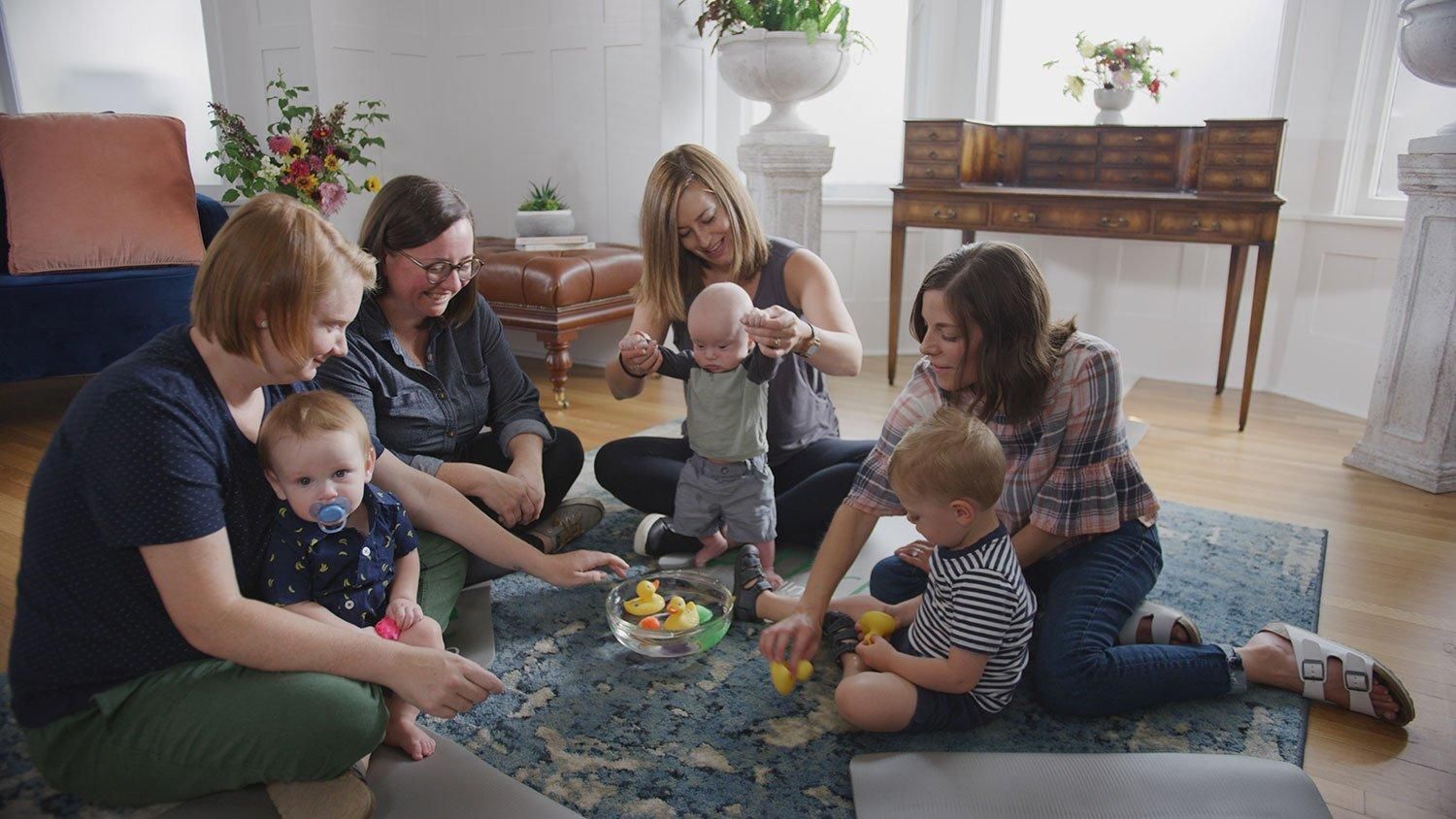Finding Support for Perinatal Mental Health Struggles

New Parents and Perinatal Mood and Anxiety Disorders
Whether going through pregnancy or the adoption process, new parents undergo a rollercoaster ride of emotions as they welcome baby(ies) into their lives. This significant life change isn’t always straightforward or easy to process. Some new parents must deal with difficult birth experiences, unresolved trauma, and fears related to being a parent. Many new parents struggle to bond with their baby, face severe mood imbalances, and struggle to completely welcome the change into their lives.
Perinatal mood and anxiety disorders (PMADs) affect many new parents during the perinatal period, which lasts from pregnancy up to one year following birth. PMADs can refer to depression, anxiety, panic disorder, OCD, bipolar disorder, psychosis, and PTSD during the perinatal period. The term “baby blues,” has a milder connotation than PMADs and can describe similar symptoms, but usually resolve within two weeks. If you are a new parent who feels like the “baby blues,” are interfering with your ability to function normally, you may be struggling with something more severe — a PMAD. Many new parents struggling with mood imbalances feel isolated, guilty, ashamed and judged. They are not alone. There are many new parents that are coping with similar struggles.
Processing Perinatal Loss and Grief
The loss of a pregnancy or infant is often thought of as a disenfranchised loss. Disenfranchised loss and grief is any loss that is not universally recognized as a significant loss by society. When a loss goes unacknowledged or is minimized or invalidated, it is difficult for the person who is grieving to process and heal.
For example, if someone loses a parent, spouse, or grown child, it is recognized as a significant loss. But when someone suffers the loss of a pet, a job, or related to the perinatal period… miscarriage, stillbirth, molar pregnancy, or even infertility struggles, most people do not recognize the loss as significant because “the child was not born yet”. People might respond with sentiments like, “At least this happened now, before you got to know the baby and become attached.” Or, if an individual were to lose an infant, people may react by saying, “At least it happened early, you can always try again.”
Loss is painful no matter what the stage of life is in which it occurs. Everyone has their own healing process, which usually requires support from others. “There is no one way to grieve.” says Thrive Clinical Director Celia Zisman. “You have to teach people how to be with you, how to treat you and react to you.” Grief can feel lonely, especially when the loss feels minimized by society. You don’t have to grieve alone. Our specialists, programs and support groups offer avenues to processing and healing from the loss of a pregnancy or infant, as well as other disenfranchised losses such as those due to infertility and reproductive issues, as well as struggles with adoption.
Let’s Thrive Together!
Our new intensive outpatient program for perinatal mental health is called “It Takes a Village”. This program is designed for parents struggling with PMADs, trouble bonding with baby, and adjusting to parenthood. Parents have so much to adjust to, and sometimes one hour of therapy each week is not enough. This program meets five days a week. In addition to individual therapy, the program includes different group therapy activities which are evidenced-based to aid in the recovery process. Being surrounded by people going through similar situations as you is extremely beneficial to help support you and get you on the road to recovery.
Thrive also offers two free support groups for individuals struggling with perinatal mental health. One is specifically tailored to those struggling with grief and loss related to a miscarriage, stillbirth, SIDS, early infant death, molar pregnancies and/or other complications. The other group is intended for parents struggling through pregnancy, postpartum, baby blues and other mental health challenges in the perinatal period.
Zisman often relays the quote by Postpartum International: “You are not alone, you are not to blame, and with help you will get better.” It is okay to feel overwhelmed. It is okay to grieve. It is okay to not be okay. Thrive is here for you. We want to support you and help you heal. Start thriving with us today! Call us at 775-525-8103 to learn more about our perinatal mental health programs and support groups.
The post Finding Support for Perinatal Mental Health Struggles first appeared on Thrive Wellness.








